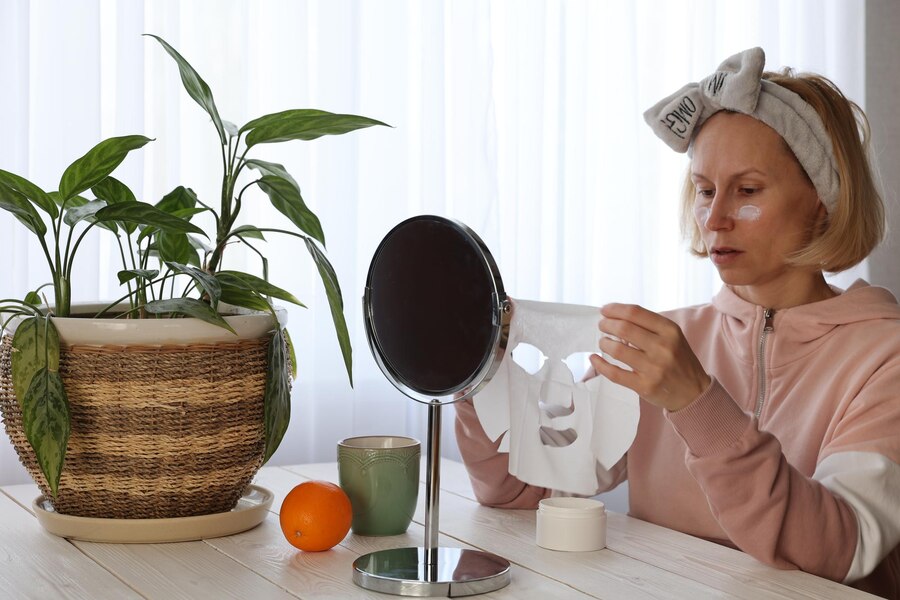Menopause is a significant life transition that every woman experiences. While it marks the end of reproductive years, it also ushers in a new phase of life that can be both challenging and liberating. As your body undergoes hormonal changes, it’s crucial to prioritize self-care to navigate this journey with grace and comfort.
This article will explore essential self-care tips to help you master menopause and embrace this new chapter with confidence and vitality.
Understanding Menopause
Before diving into self-care strategies, it’s important to understand what menopause entails. Typically occurring between the ages of 45 and 55, menopause is defined as the point when a woman hasn’t had a menstrual period for 12 consecutive months.
The years leading up to this point, known as perimenopause, can bring various symptoms due to fluctuating hormone levels.
Nurture Your Body with Proper Nutrition
One of the most effective ways to master menopause is through a balanced diet. Focus on incorporating:
- Phytoestrogen-rich foods: Soy products, flaxseeds, and legumes can help alleviate some menopausal symptoms.
- Calcium and vitamin D: Essential for maintaining bone health as the risk of osteoporosis increases.
- Omega-3 fatty acids: Found in fatty fish, walnuts, and chia seeds, these can help with mood swings and joint pain.
- Whole grains and fiber: To support digestive health and maintain a healthy weight.
Stay Hydrated and Limit Triggers
Proper hydration is crucial during menopause. Aim for at least 8-10 glasses of water daily to help with:
- Hot flashes
- Bloating
- Dry skin
Additionally, identify and limit triggers that may exacerbate symptoms. Common culprits include:
- Caffeine
- Alcohol
- Spicy foods
- Hot beverages
Prioritize Regular Exercise
Physical activity is a cornerstone of menopausal self-care. Regular exercise can help:
- Maintain a healthy weight
- Improve mood and sleep quality
- Strengthen bones and muscles
- Reduce the risk of heart disease
Aim for a mix of activities:
- Aerobic exercises: Walking, swimming, or cycling for 30 minutes most days of the week.
- Strength training: Twice a week to maintain muscle mass and bone density.
- Yoga or Pilates: To improve flexibility, balance, and stress management.
Manage Stress and Prioritize Mental Health
Stress can exacerbate menopausal symptoms. Incorporate stress-reduction techniques into your daily routine:
- Meditation or mindfulness practices
- Deep breathing exercises
- Journaling
- Pursuing hobbies or creative activities
Don’t hesitate to seek professional help if you’re struggling with anxiety or depression. Remember, taking care of your mental health is crucial to master menopause successfully.
Optimize Your Sleep Environment
Quality sleep can be challenging during menopause due to night sweats and insomnia. Create a sleep-friendly environment by:
- Keeping your bedroom cool and well-ventilated
- Using breathable, moisture-wicking sleepwear and bedding
- Establishing a consistent sleep schedule
- Avoiding screens before bedtime
Consider Natural Remedies
Some women find relief from menopausal symptoms through natural remedies. While research is ongoing, some options to explore include:
- Black cohosh
- Evening primrose oil
- Acupuncture
- Herbal teas like chamomile or peppermint
Always consult with your healthcare provider before starting any new supplements or alternative therapies.
Nurture Your Skin and Hair
Hormonal changes can affect your skin and hair. Adapt your beauty routine by:
- Using a gentle, moisturizing cleanser
- Applying a broad-spectrum sunscreen daily
- Incorporating hydrating serums or oils into your skincare regimen
- Opting for sulfate-free hair products to combat dryness
Regular Health Check-ups
To effectively master menopause, don’t neglect regular health screenings. Stay up-to-date with:
- Mammograms
- Pap smears
- Bone density scans
- Cholesterol and blood pressure checks
Discuss any concerns or changes in your health with your healthcare provider to ensure you’re receiving appropriate care and support.
Conclusion
Menopause is a natural part of a woman’s life journey, and with the right self-care strategies, you can navigate this transition with confidence and ease. By prioritizing nutrition, exercise, stress management, and overall well-being, you’ll be well-equipped to master menopause and embrace the opportunities this new phase of life brings.
Remember, every woman’s experience is unique, so be patient with yourself and don’t hesitate to seek support when needed.










